|
|
ISLA SAN GIORGIO (VENECIA)=GEORGE LEMAITRE
GEMATRIA EN INGLES DE SEED=33
GEMATRIA EN INGLES DE GATE=33
SARA (CE-SAREA DE FILIPO)=PARALELO 33
  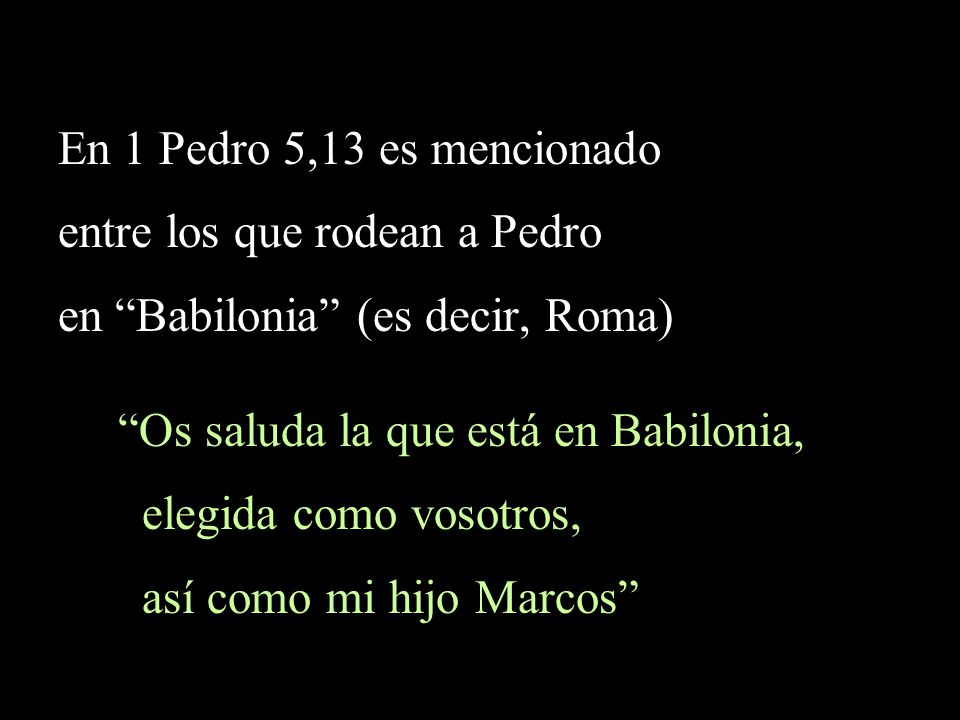 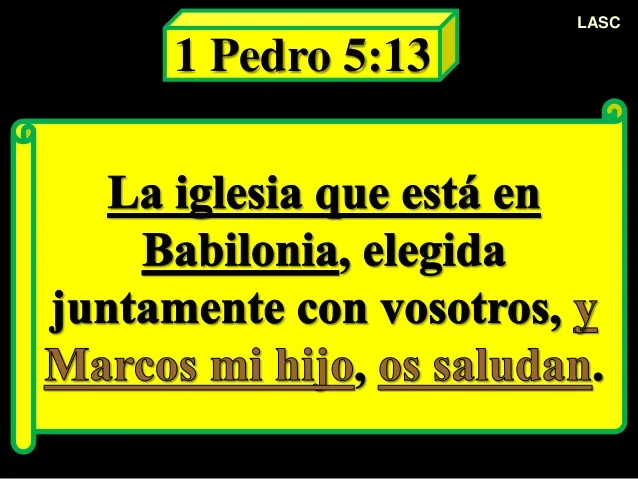
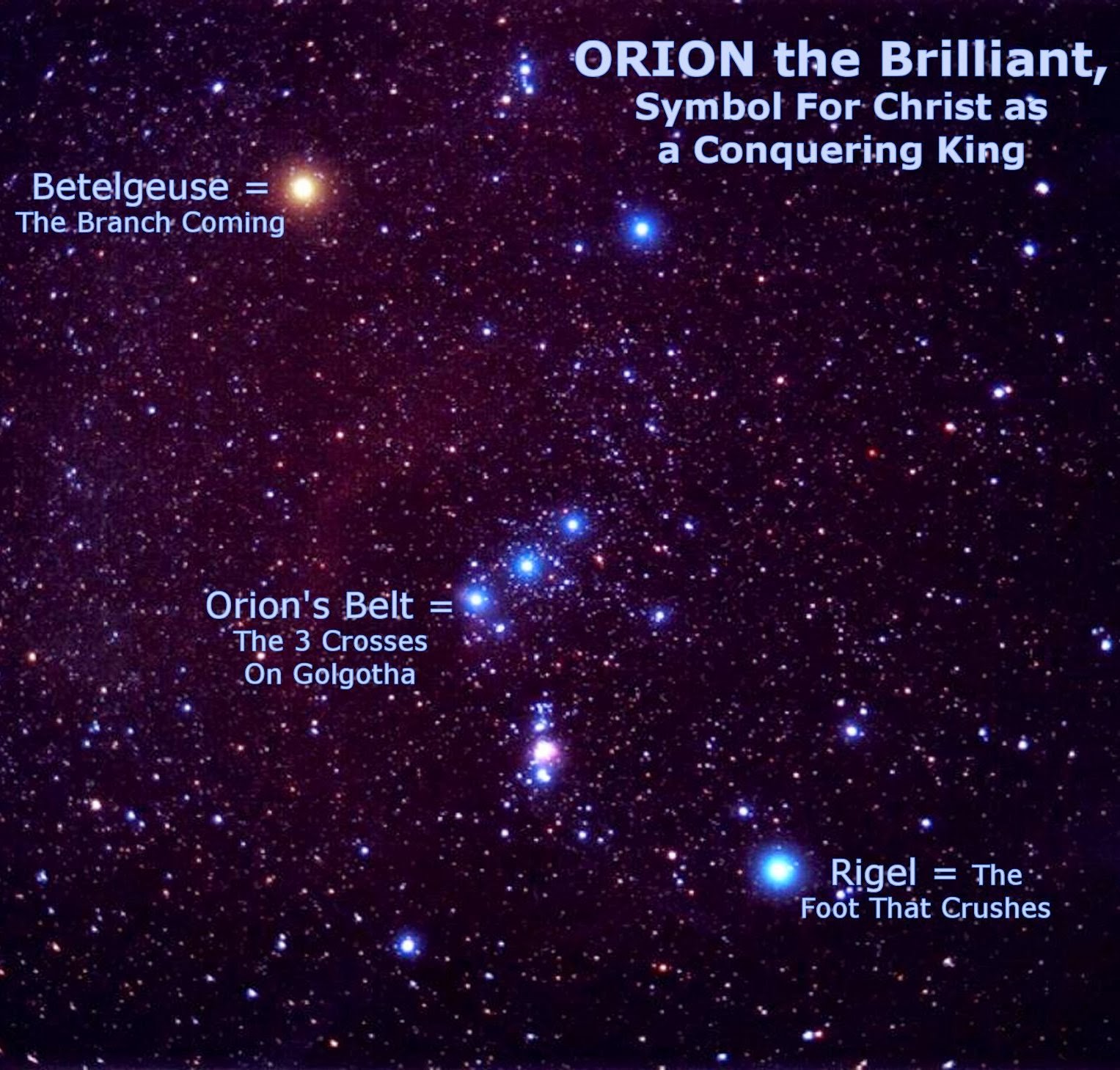 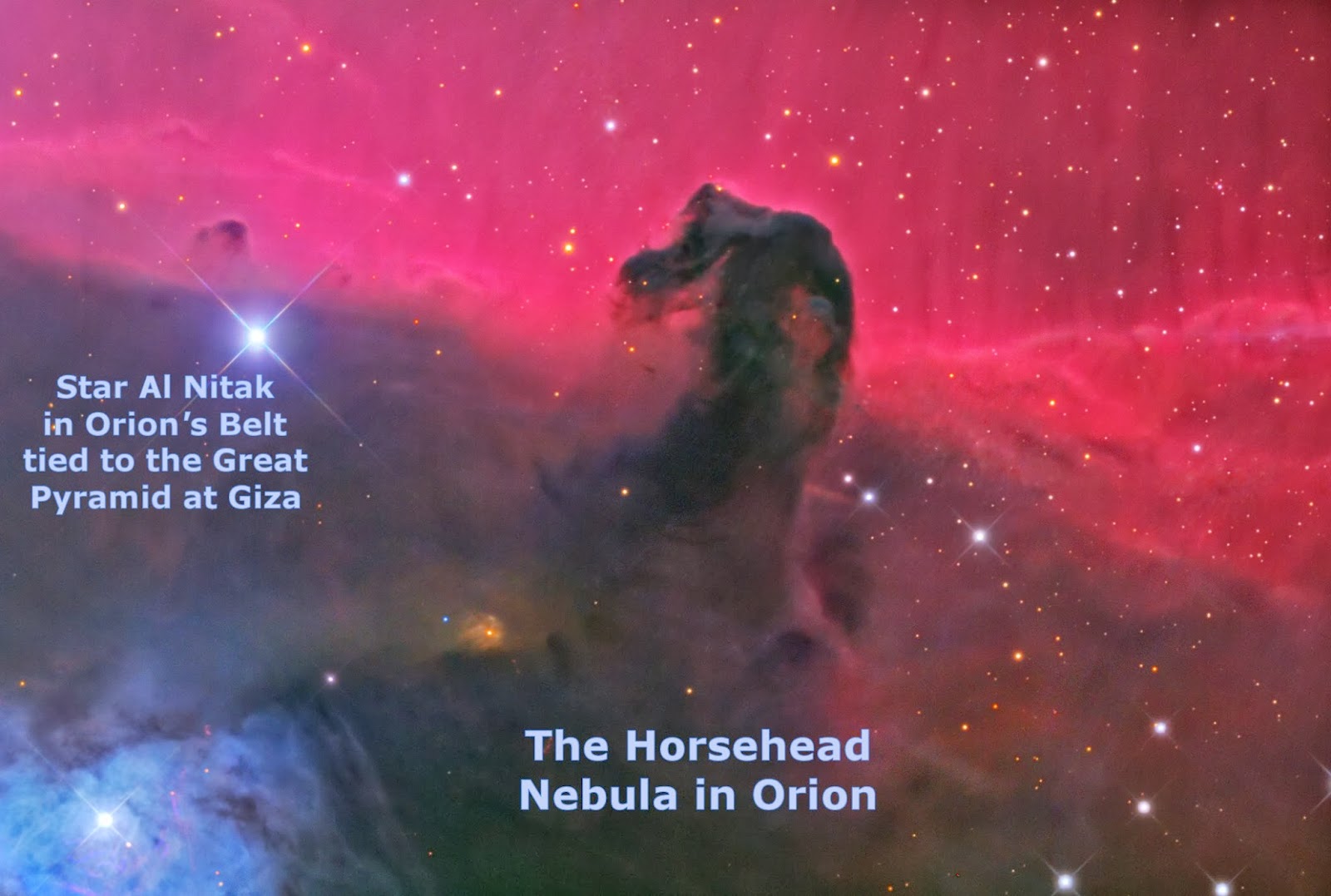
Nebulosa Cabeza de Caballo
De Wikipedia, la enciclopedia libre
| Nebulosa Cabeza de Caballo |
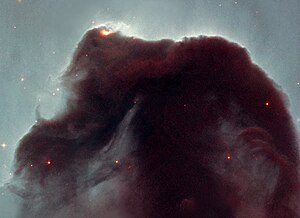 |
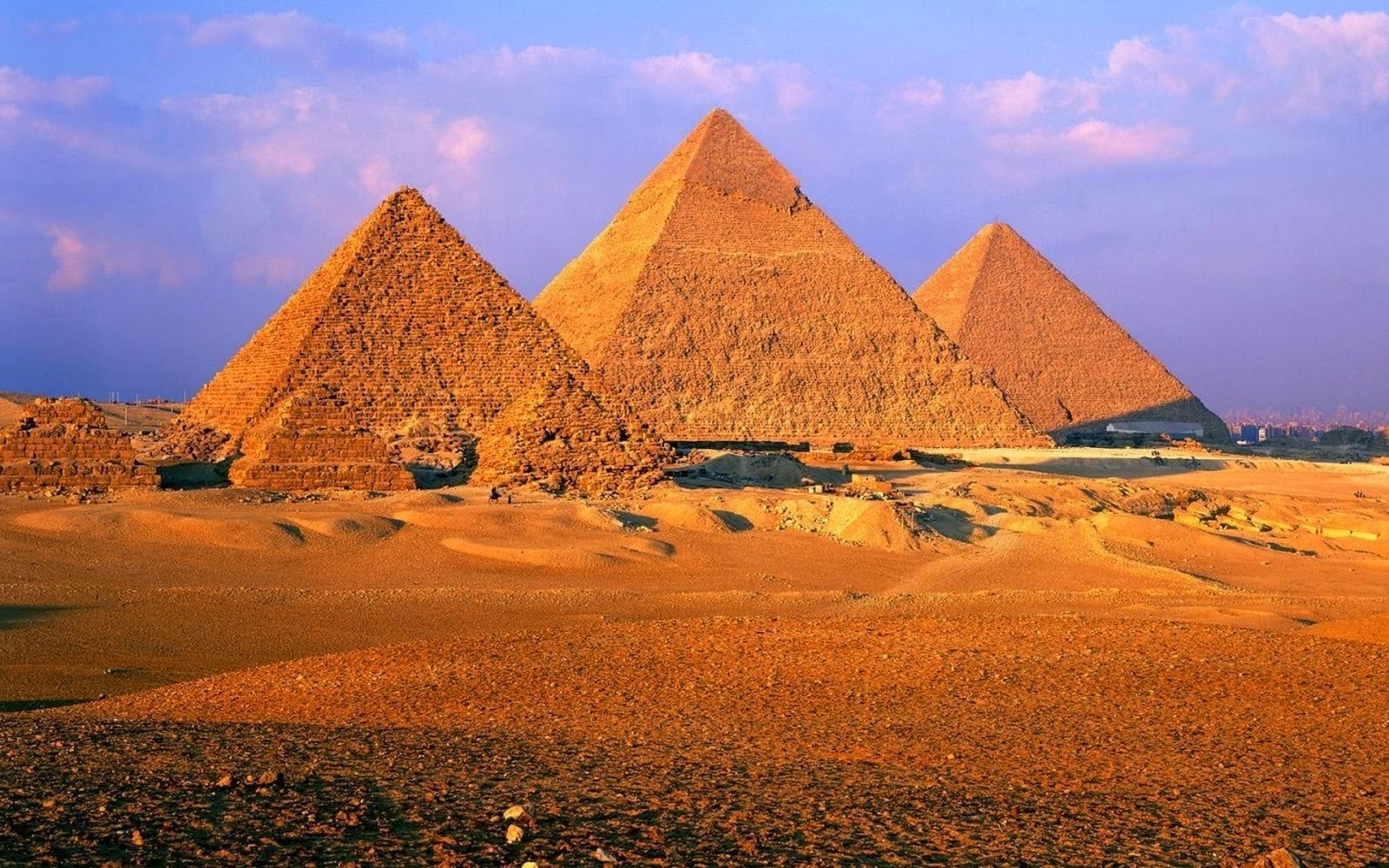



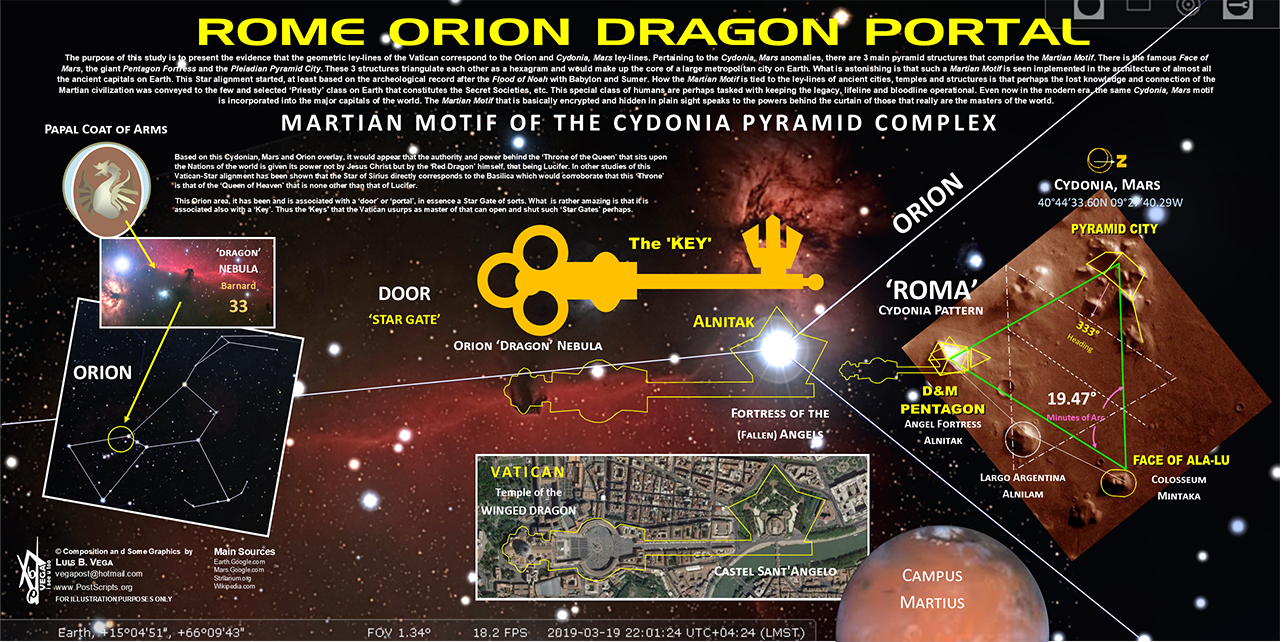
 |
¿SANTA CENA FUE EN LA CASA DE MARIA (JUAN MARCOS)? |
184 |
BARILOCHENSE6999 |
06/11/2019 17:01 |
 |
¿MARCOS 13:32 ES EL VERSICULO MAS MASONICO Y ESOTERICO DE TODA LA BIBLIA? |
14 |
BARILOCHENSE6999 |
06/11/2019 17:00 |
 |
¿EL MATEMATICO MARK WOLLUM (NEXO JUAN MARCOS=JOHN MARK) DA EL VERDADERO PI? |
14 |
BARILOCHENSE6999 |
06/11/2019 17:00 |
 |
LA "MAQUINA DEL TIEMPO" DEL VATICANO ESTA CONECTADA CON VENECIA / JUAN MARCOS |
190 |
BARILOCHENSE6999 |
06/11/2019 17:00 |
 |
SAN MARCOS (GUERRERO/MEXICO)=MARTE/GUERRA/MARTILLO/GRIAL |
82 |
BARILOCHENSE6999 |
06/11/2019 16:59 |
 |
PHOBOS/DEIMOS=AFRODITA (ABRIL)=CUERNOS DEL TORO=911=MARTE (MARCOS) |
23 |
BARILOCHENSE6999 |
06/11/2019 16:59 |
 |
ISIS-HORUS-SET=APOCALIPSIS 12=SAN MIGUEL ARCANGEL=MARTE/APOLO/HORUS/MARCOS |
53 |
BARILOCHENSE6999 |
06/11/2019 16:59 |
 |
SAN MARCOS SUD, EN LA ARGENTINA, CASI EN EL PARALELO 33 |
17 |
BARILOCHENSE6999 |
06/11/2019 16:58 |
 |
METRO GOLDWYN MAYER-SAN MARCOS-BEVERLY HILLS-PARALELO 33 |
159 |
BARILOCHENSE6999 |
06/11/2019 16:58 |
 |
SAULO DE TARSO=PABLO=PEQUEÑO=LOBO=PERRO=SIRIO=BENJAMIN=MARTE=GUERRA=MARCOS |
74 |
BARILOCHENSE6999 |
06/11/2019 16:58 |
 |
CONEXION 33, SERPIENTE, $,NUMERO 19, CESAR, SANTO GRIAL,SALOMON, EEUU,ROMA,ETC |
159 |
BARILOCHENSE6999 |
06/11/2019 16:51 |
 |
GLORIA A DIOS, SAULO DE TARSO ERA CIUDADANO ROMANO-HECHOS 22:25 |
5 |
BARILOCHENSE6999 |
06/11/2019 16:50 |
 |
JUAN MARCOS, APOSTOL DE LOS GENTILES (JUAN/HEBREO MARCOS/ROMANO) |
30 |
BARILOCHENSE6999 |
06/11/2019 16:50 |
 |
¿ALBERT EINSTEIN ERA CATOLICO APOSTOLICO ROMANO? |
113 |
BARILOCHENSE6999 |
06/11/2019 16:50 |
 |
LA TEORIA DEL TODO (TODOS LOS CAMINOS CONDUCEN A ROMA) |
26 |
BARILOCHENSE6999 |
06/11/2019 16:49 |
 |
TODOS LOS CAMINOS CONDUCEN A ROMA Y TODOS LOS CAMINOS CONDUCEN AL GRIAL |
282 |
BARILOCHENSE6999 |
06/11/2019 16:49 |
 |
GLORIA A DIOS EL PADRE TODOPODEROSO QUE TODOS LOS CAMINOS CONDUCEN A ROMA |
67 |
BARILOCHENSE6999 |
06/11/2019 16:49 |
 |
DIA DE MARIA MAGDALENA Y SU RELACION CON MARTE Y EL METRO |
29 |
BARILOCHENSE6999 |
06/11/2019 16:48 |
 |
ESCALERA DE JACOB=SANTIAGO (JACOBO)="AGUJERO DE GUSANO"=CASA Y PUERTA DE DIOS |
63 |
BARILOCHENSE6999 |
06/11/2019 16:46 |
 |
IGLESIA SAN MARCOS/CAMINO DE SANTIAGO/CONSTELACION DEL CISNE/CYGNUS/GEMINIS |
136 |
BARILOCHENSE6999 |
06/11/2019 16:45 |
 |
MARIA DE SALOME, MADRE DE JUAN Y SANTIAGO, SU DIA ES EL 22 DE OCTUBRE |
7 |
BARILOCHENSE6999 |
06/11/2019 16:45 |
 |
MARIA DE SALOME, MADRE DE SANTIAGO Y JUAN=22 DE OCTUBRE=SAN JUAN PABLO II |
6 |
BARILOCHENSE6999 |
06/11/2019 16:44 |
 |
TRANSFIGURACION=33=PARALELO 33=CRISTO, ELIAS Y MOISES; JUAN, PEDRO Y SANTIAGO |
598 |
BARILOCHENSE6999 |
06/11/2019 16:44 |
 |
NEBULOSA CABEZA DE CABALLO O BARNARD 33 (B33)-CONTELACION DE ORION |
27 |
BARILOCHENSE6999 |
06/11/2019 16:37 |
 |
PROVERBIOS 21:31="CABALLO DE TROYA"=VENUS=VICTORIA=GRIAL |
40 |
BARILOCHENSE6999 |
06/11/2019 16:37 |
 |
CABALLO DE TROYA (MARCO ASTRONOMICO)=CYGNUS="VIAJES EN EL TIEMPO"=SANTIAGO |
79 |
BARILOCHENSE6999 |
06/11/2019 16:37 |
 |
¿PORQUE LA RELACION DEL VATICANO CON LOS "VIAJES EN EL TIEMPO"? |
34 |
BARILOCHENSE6999 |
06/11/2019 16:34 |
 |
MATEO 16:18=VATICANO="AGUJERO DE GUSANO"="TRASLACION EN EL TIEMPO"=MANZANA |
135 |
BARILOCHENSE6999 |
06/11/2019 16:34 |
 |
¿PORQUE 2*SEN 666=1.618033? -OBVIO NEXO VATICANO CON ONDA SINUSOIDAL/SAN ANGELO |
98 |
BARILOCHENSE6999 |
06/11/2019 16:33 |
 |
MATEO 16:18-VATICANO=WASHINGTON D.C=MASONERIA=SAN MARCOS=LIBERTAD |
232 |
BARILOCHENSE6999 |
06/11/2019 16:33 |
 |
VATICANO-CASTILLO SAN ANGELO (VENUS=VENECIA=MANZANA DE ORO)-NUMERO PHI=1.618 |
88 |
BARILOCHENSE6999 |
06/11/2019 16:33 |
 |
TRANSFIGURACION=TRASLACION EN EL TIEMPO=PEDRO=PIEDRA=VATICANO=EINSTEIN |
77 |
BARILOCHENSE6999 |
06/11/2019 16:32 |
 |
PIRAMIDE DEL VATICANO="EXPERIMENTO FILADELFIA"="MAQUINA DEL TIEMPO"=SANTA CENA |
1043 |
BARILOCHENSE6999 |
06/11/2019 16:32 |
 |
MARIA DE LA VICTORIA=MAGDALENA=ISHTAR GATE=EAST GATE=SILVER GATE=VATICANO |
119 |
BARILOCHENSE6999 |
06/11/2019 16:32 |
 |
MISTERIO DE NUESTRA FE=MISA CATOLICA=ROSWELL=PARALELO 33=PASO/PESAJ/PASCUA=GRIAL |
106 |
BARILOCHENSE6999 |
06/11/2019 16:31 |
 |
JOSE DE SAN MARTIN, FRANC MASON, PARALELO 33 Y LOS VIAJES EN EL TIEMPO |
12 |
BARILOCHENSE6999 |
06/11/2019 16:31 |
 |
VICTORIA (MESOPOTAMIA ARGENTINA)=PARALELO 33=CIUDAD DE 7 COLINAS=FILADELFIA |
89 |
BARILOCHENSE6999 |
06/11/2019 16:22 |
 |
PIRAMIDE EN MARTE-RELACION CON EL SANTO GRIAL-SECRETO MASONICO |
169 |
BARILOCHENSE6999 |
06/11/2019 16:20 |
 |
EXPERIMENTO FILADELFIA=22 DE JULIO=DIA DE MARIA LA MAGDALENA |
1093 |
BARILOCHENSE6999 |
06/11/2019 16:17 |
 |
25 DE JULIO (DIA DE SANTIAGO)-NEXO TRANSFIGURACION-CARA OCULTA EN MARTE |
51 |
BARILOCHENSE6999 |
06/11/2019 16:12 |
 |
ESPOSA DE PIÑERA, SANTIAGO DE CHILE, PARALELO 33, "INVASION ALIENIGENA" |
33 |
BARILOCHENSE6999 |
06/11/2019 16:08 |
 |
¿CUAL ES EL SECRETO DEL ROSWELL, PARALELO 33, CON EL CODIGO DA VINCI? |
60 |
BARILOCHENSE6999 |
06/11/2019 16:07 |
 |
YHWH TAMBIEN ES DIOS DE LOS EXTRATERRESTRES-CONEXION ROSWELL-MONTE HERMON |
452 |
BARILOCHENSE6999 |
06/11/2019 16:07 |
 |
CARLOS GARDEL, MURIO, EL 24 DE JUNIO, EN COLOMBIA (DIA DE JUAN EL BAUTISTA) |
35 |
BARILOCHENSE6999 |
06/11/2019 15:57 |
 |
FUNDACION DE LA MASONERIA EL 24 DE JUNIO, DIA DE JUAN EL BAUTISTA |
22 |
BARILOCHENSE6999 |
06/11/2019 15:57 |
 |
ERA O NO ERA JUAN EL BAUTISTA EL PROFETA ELÍAS |
7 |
BARILOCHENSE6999 |
06/11/2019 15:56 |
 |
OANNES SUMERIO=SEÑAL DE JONAS=JUAN EL BAUTISTA=VESICA PISCIS=JUAN MARCOS=PUERTA |
32 |
BARILOCHENSE6999 |
06/11/2019 15:56 |
 |
JUAN XXIII (PAPA DE VENECIA=JUAN MARCOS) TUVO CONTACTO CON EXTRATERRESTRES |
14 |
BARILOCHENSE6999 |
06/11/2019 15:52 |
 |
BENEDICTO XVI, RELACIONA EL GRIAL CON EL PARALELO 33 (TRANSFIGURACION) |
40 |
BARILOCHENSE6999 |
06/11/2019 15:50 |
 |
¿EL TIEMPO ES ALGO VIRTUAL O UNA ILUSION? (PREGUNTA PARA ROMPERSE LA CABEZA) |
13 |
BARILOCHENSE6999 |
06/11/2019 15:48 |
|
|
|
|
|

salt lake city=alchemy (salt)=dollar=$= LOT S WIFE (SODOMA AND GOMORRA)
Cathedral of the Madeleine
From Wikipedia, the free encyclopedia
The Cathedral of the Madeleine is a Roman Catholic church in Salt Lake City, Utah, United States. It was completed in 1909 and currently serves as the cathedral, or mother church, of the Diocese of Salt Lake City. It is the only cathedral in the U.S. under the patronage of St. Mary Magdalene.
Description[edit]
The cathedral was built under the direction of Lawrence Scanlan, the first bishop of Salt Lake City, who dedicated it to St. Mary Magdalene.[2] It was designed by architects Carl M. Neuhausen and Bernard O. Mecklenburg. The exterior is predominantly a Neo-Romanesque design, while the inside displays more Neo-Gothic details. Construction began in 1900 and was completed in 1909. It was dedicated by James Cardinal Gibbons, Archbishop of Baltimore.
It is theorized that Bishop Scanlan chose Mary Magdalene as the patron saint of the Diocese of Salt Lake because her feast day is on July 22, two days before Pioneer Day, a celebration commemorating the arrival of the Mormon pioneers in Salt Lake Valley, so that Catholics would have something to celebrate alongside the region's dominant faith.[3]
The interior of the cathedral was created under the direction of Joseph S. Glass, the second bishop of Salt Lake. Bishop Glass enlisted John Theodore Comes, one of the preeminent architects in the country, to decorate the interior of the cathedral. His plans for the interior were largely based upon the Spanish Gothic style. The colorful murals and polychrome were added at this time, as were the ornate shrines. In 1916, Bishop Glass also changed the name of the cathedral to the French spelling after visiting her purported tomb.[2]
In the 1970s, the exterior of the building was restored, and between 1991 and 1993, the interior of the cathedral was renovated and restored under Bishop William K. Weigand. This included not only the removal of dust and dirt and restoration of the interior but also changes to the liturgical elements of the cathedral to bring them into conformity with certain widespread changes in liturgical practice that developed after the Second Vatican Council.
This included constructing a new altar, moving the cathedra, creating a separate chapel for the Blessed Sacrament, and adding an ample baptismal font. The Blessed Sacrament Chapel also contains the tomb of Bishop Scanlan.[4] Resting atop the tomb is a case containing a small relic of Saint Mary Magdalene. The cathedral in Salt Lake City and the Basilica of Saint-Maximin-la-Sainte-Baume in France are the only cathedrals in the world holding first-class relics of the saint and are named in her honor.[5] The major restoration of the interior of the cathedral was accomplished through the vision of Monsignor M. Francis Mannion.[6]
The cathedral is home to the only co-educational Catholic Choir School in the United States. The Madeleine Choir School, established in 1996, now serves over 400 students in Pre-Kindergarten through Grade Eight.[7] The Cathedral Choir has recorded several CDs and routinely tours both nationally and internationally. In addition to singing daily services at the Cathedral of the Madeleine, choristers have sung at St. Peter's Basilica (Vatican City), Notre Dame de Paris (France), and in churches across the United States of America, Spain, Italy, France, Belgium, and Germany, among other places.[8]
Composer Amédée Tremblay notably served as the church's organist from 1920 to 1925.[9]
-
-
Cathedral of the Madeleine, looking east
-
Interior of the cathedral
-
   |
|
|
|
|

Jordan River (Utah)
From Wikipedia, the free encyclopedia
The Jordan River, in the state of Utah, United States, is a river about 51 miles (82 km) long. Regulated by pumps at its headwaters at Utah Lake, it flows northward through the Salt Lake Valley and empties into the Great Salt Lake. Four of Utah's six largest cities border the river: Salt Lake City, West Valley City, West Jordan, and Sandy. More than a million people live in the Jordan Subbasin, part of the Jordan River watershed that lies within Salt Lake and Utah counties. During the Pleistocene, the area was part of Lake Bonneville.
Members of the Desert Archaic Culture were the earliest known inhabitants of the region; an archaeological site found along the river dates back 3,000 years. Mormon pioneers led by Brigham Young were the first European American settlers, arriving in July 1847 and establishing farms and settlements along the river and its tributaries. The growing population, needing water for drinking, irrigation, and industrial use in an arid climate, dug ditches and canals, built dams, and installed pumps to create a highly regulated river.
Although the Jordan was originally a cold-water fishery with 13 native species, including Bonneville cutthroat trout, it has become a warm-water fishery where the common carp is most abundant. It was heavily polluted for many years by raw sewage, agricultural runoff, and mining wastes. In the 1960s, sewage treatment removed many pollutants. In the 21st century, pollution is further limited by the Clean Water Act, and, in some cases, the Superfund program. Once the home of bighorn sheep and beaver, the contemporary river is frequented by raccoons, red foxes, and domestic pets. It is an important avian resource, as are the Great Salt Lake and Utah Lake, visited by more than 200 bird species.
Big Cottonwood, Little Cottonwood, Red Butte, Mill, Parley's, and City creeks, as well as smaller streams like Willow Creek at Draper, Utah, flow through the sub-basin. The Jordan River Parkway along the river includes natural areas, botanical gardens, golf courses, and a 40-mile (64 km) bicycle and pedestrian trail, completed in 2017.[6]
The Jordan River is Utah Lake's only outflow. It originates at the northern end of the lake between the cities of Lehi and Saratoga Springs. It then meanders north through the north end of Utah Valley for approximately 8 miles (13 km) until it passes through a gorge in the Traverse Mountains, known as the Jordan Narrows. The Utah National Guard base at Camp Williams lies on the western side of the river through much of the Jordan Narrows.[7][8] The Turner Dam, located 41.8 miles (67.3 km) from the river's mouth (or at river mile 41.8) and within the boundaries of the Jordan Narrows, is the first of two dams of the Jordan River. Turner Dam diverts the water to the right or easterly into the East Jordan Canal and to the left or westerly toward the Utah and Salt Lake Canal. Two pumping stations situated next to Turner Dam divert water to the west into the Provo Reservoir Canal, Utah Lake Distribution Canal, and Jacob-Welby Canal. The Provo Reservoir Canal runs north through Salt Lake County, Jacob-Welby runs south through Utah County. The Utah Lake Distribution Canal runs both north and south, eventually leading back into Utah Lake.[9] Outside the narrows, the river reaches the second dam, known as Joint Dam, which is 39.9 miles (64.2 km) from the river's mouth. Joint Dam diverts water to the east for the Jordan and Salt Lake City Canal and to the west for the South Jordan Canal.[10][11][12]
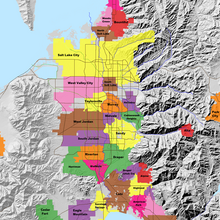
Map of the Salt Lake Valley
The river then flows through the middle of the Salt Lake Valley, initially moving through the city of Bluffdale and then forming the border between the cities of Riverton and Draper.[7] The river then enters the city of South Jordan where it merges with Midas Creek from the west. Upon leaving South Jordan, the river forms the border between the cities of West Jordan on the west and Sandy and Midvale on the east. From the west, Bingham Creek enters West Jordan. Dry Creek, an eastern tributary, combines with the main river in Sandy. The river then forms the border between the cities of Taylorsville and West Valley City on the west and Murray and South Salt Lake on the east. The river flows underneath Interstate 215 in Murray. Little and Big Cottonwood Creeks enter from the east in Murray, 21.7 miles (34.9 km) and 20.6 miles (33.2 km) from the mouth respectively. Mill Creek enters on the east in South Salt Lake, 17.3 miles (27.8 km) from the mouth. The river runs through the middle of Salt Lake City, where the river travels underneath Interstate 80 a mile west of downtown Salt Lake City and again underneath Interstate 215 in the northern portion of Salt Lake City. Interstate 15 parallels the river's eastern flank throughout Salt Lake County. At 16 miles (26 km) from the mouth, the river enters the Surplus Canal channel. The Jordan River physically diverts from the Surplus Canal through four gates and heads north with the Surplus Canal heading northwest. Parley's, Emigration, and Red Butte Creeks converge from the east through an underground pipe, 14.2 miles (22.9 km) from the mouth.[7] City Creek also enters via an underground pipe, 11.5 miles (18.5 km) from the river's mouth. The length of the river and the elevation of its mouth varies year to year depending on the fluctuations of the Great Salt Lake caused by weather conditions. The lake has an average elevation of 4,200 feet (1,300 m) which can deviate by 10 feet (3.0 m).[3] The Jordan River then continues for 9 to 12 miles (14 to 19 km) with Salt Lake County on the west and North Salt Lake and Davis County on the east until it empties into the Great Salt Lake.[7][8][11]
Discharge[edit]
The United States Geological Survey maintains a stream gauge in Salt Lake City that shows annual runoff from the period 1980–2003 is just over 150,000 acre-feet (190,000,000 m3) per year or 100 percent of the total 800,000 acre-feet (990,000,000 m3) of water entering the Jordan River from all sources. The Surplus Canal carries almost 60 percent of the water into the Great Salt Lake, with various irrigation canals responsible for the rest. The amount of water entering the Jordan River from Utah Lake is just over 400,000 acre-feet (490,000,000 m3) per year. Inflow from the 11 largest streams feeding the Jordan River, sewage treatment plants, and groundwater each account for approximately 15 percent of water entering the river.[13]
Watershed[edit]
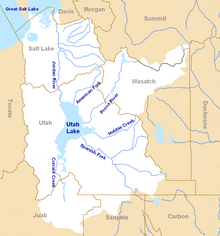
Map of the entire Jordan River Basin
|
|
|
|
|
DREAMS=D-REAMS=LETTER D

|
|
|
|
|
|
|
|
Hagia Sophia
From Wikipedia, the free encyclopedia
Hagia Sophia (Turkish: Ayasofya; Ancient Greek: Ἁγία Σοφία, romanized: Hagía Sophía; Latin: Sancta Sapientia; lit. 'Holy Wisdom'), officially the Hagia Sophia Grand Mosque (Turkish: Ayasofya-i Kebir Cami-i Şerifi; Greek: Μεγάλο Τζαμί της Αγίας Σοφίας),[3] is a mosque and former church serving as a major cultural and historical site in Istanbul, Turkey. The last of three church buildings to be successively erected on the site by the Eastern Roman Empire, it was completed in AD 537. The site was an Eastern rite church from AD 360 to 1453, except for a brief time as a Latin Catholic church between the Fourth Crusade and 1261.[4] After the fall of Constantinople in 1453, it served as a mosque until 1935, when it became a museum. In 2020, the site once again became a mosque.
The current structure was built by the Byzantine emperor Justinian I as the Christian cathedral of Constantinople for the Byzantine Empire between 532 and 537, and was designed by the Greek geometers Isidore of Miletus and Anthemius of Tralles.[5] It was formally called the Church of God's Holy Wisdom (Greek: Ναὸς τῆς Ἁγίας τοῦ Θεοῦ Σοφίας, romanized: Naòs tês Hagías toû Theoû Sophías)[6][7] and upon completion became the world's largest interior space and among the first to employ a fully pendentive dome. It is considered the epitome of Byzantine architecture[8] and is said to have "changed the history of architecture".[9] The present Justinianic building was the third church of the same name to occupy the site, as the prior one had been destroyed in the Nika riots. As the episcopal see of the ecumenical patriarch of Constantinople, it remained the world's largest cathedral for nearly a thousand years, until the Seville Cathedral was completed in 1520. Beginning with subsequent Byzantine architecture, Hagia Sophia became the paradigmatic Orthodox church form, and its architectural style was emulated by Ottoman mosques a thousand years later.[10] It has been described as "holding a unique position in the Christian world"[10] and as an architectural and cultural icon of Byzantine and Eastern Orthodox civilization.[10][11][12]
The religious and spiritual centre of the Eastern Orthodox Church for nearly one thousand years, the church was dedicated to the Holy Wisdom.[13][14][15] It was where the excommunication of Patriarch Michael I Cerularius was officially delivered by Humbert of Silva Candida, the envoy of Pope Leo IX in 1054, an act considered the start of the East–West Schism. In 1204, it was converted during the Fourth Crusade into a Catholic cathedral under the Latin Empire, before being returned to the Eastern Orthodox Church upon the restoration of the Byzantine Empire in 1261. Enrico Dandolo, the doge of Venice who led the Fourth Crusade and the 1204 Sack of Constantinople, was buried in the church.
After the fall of Constantinople to the Ottoman Empire in 1453,[16] it was converted to a mosque by Mehmed the Conqueror and became the principal mosque of Istanbul until the 1616 construction of the Sultan Ahmed Mosque.[17][18] Upon its conversion, the bells, altar, iconostasis, ambo, and baptistery were removed, while iconography, such as the mosaic depictions of Jesus, Mary, Christian saints and angels were removed or plastered over.[19] Islamic architectural additions included four minarets, a minbar and a mihrab. The Byzantine architecture of the Hagia Sophia served as inspiration for many other religious buildings including the Hagia Sophia in Thessaloniki, Panagia Ekatontapiliani, the Şehzade Mosque, the Süleymaniye Mosque, the Rüstem Pasha Mosque and the Kılıç Ali Pasha Complex. The patriarchate moved to the Church of the Holy Apostles, which became the city's cathedral.
The complex remained a mosque until 1931, when it was closed to the public for four years. It was re-opened in 1935 as a museum under the secular Republic of Turkey, and the building was Turkey's most visited tourist attraction as of 2019.[20]
In July 2020, the Council of State annulled the 1934 decision to establish the museum, and the Hagia Sophia was reclassified as a mosque. The 1934 decree was ruled to be unlawful under both Ottoman and Turkish law as Hagia Sophia's waqf, endowed by Sultan Mehmed, had designated the site a mosque; proponents of the decision argued the Hagia Sophia was the personal property of the sultan. The decision to designate Hagia Sophia as a mosque was highly controversial. It resulted in divided opinions and drew condemnation from the Turkish opposition, UNESCO, the World Council of Churches and the International Association of Byzantine Studies, as well as numerous international leaders, while several Muslim leaders in Turkey and other countries welcomed its conversion into a mosque.
Church of Constantius II
[edit]
 Hagia Sophia, Istanbul, Turkey, ca. 1897.
The first church on the site was known as the Magna Ecclesia (Μεγάλη Ἐκκλησία, Megálē Ekklēsíā, 'Great Church')[21][22] because of its size compared to the sizes of the contemporary churches in the city.[13] According to the Chronicon Paschale, the church was consecrated on 15 February 360, during the reign of the emperor Constantius II (r. 337–361) by the Arian bishop Eudoxius of Antioch.[23][24] It was built next to the area where the Great Palace was being developed. According to the 5th-century ecclesiastical historian Socrates of Constantinople, the emperor Constantius had c. 346 "constructed the Great Church alongside that called Irene which because it was too small, the emperor's father [Constantine] had enlarged and beautified".[25][23] A tradition which is not older than the 7th or 8th century reports that the edifice was built by Constantius' father, Constantine the Great (r. 306–337).[23] Hesychius of Miletus wrote that Constantine built Hagia Sophia with a wooden roof and removed 427 (mostly pagan) statues from the site.[26] The 12th-century chronicler Joannes Zonaras reconciles the two opinions, writing that Constantius had repaired the edifice consecrated by Eusebius of Nicomedia, after it had collapsed.[23] Since Eusebius was the bishop of Constantinople from 339 to 341, and Constantine died in 337, it seems that the first church was erected by Constantius.[23]
 View of the dome interior
        |
|
|
 Primer Primer
 Anterior
22 a 36 de 36
Següent Anterior
22 a 36 de 36
Següent
 Darrer
Darrer

|

